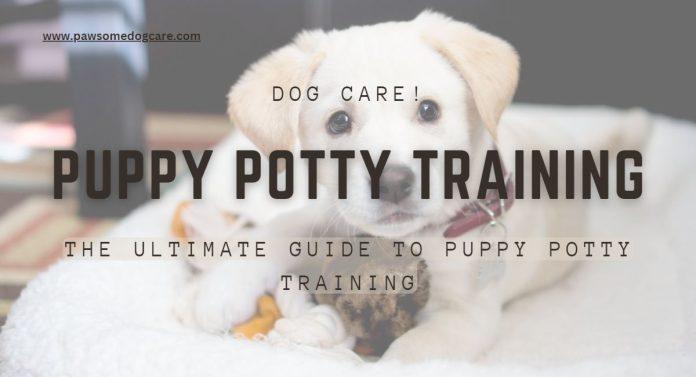Bringing home a new puppy is an exciting time, but it also comes with responsibilities. One of the most important aspects of puppy care is potty training. Properly training your puppy to eliminate in the right place not only helps maintain a clean and hygienic living environment but also fosters a strong bond between you and your furry friend. In this comprehensive guide, we will explore effective strategies, tips, and techniques for successful puppy potty training.
Understanding the Basics:
Before diving into the training process, it’s essential to understand some basic principles of puppy potty training. Puppies have limited bladder control and may need to eliminate as frequently as every hour. They also have a natural instinct to avoid soiling their sleeping area, which can be leveraged during the training process. Additionally, consistency, positive reinforcement, and patience are key factors in successfully potty training your puppy.
Setting Up a Routine:
Establishing a regular routine is crucial when potty training your puppy. This includes feeding your puppy at consistent times, taking them outside for bathroom breaks after meals, naps, and playtime, and providing ample opportunities for elimination. By following a predictable routine, you can help your puppy learn to associate certain cues with going potty.
Choosing a Potty Spot:
Designating a specific potty spot outdoors is important for puppy potty training. Find an easily accessible area in your yard or close to your home that your puppy can associate with elimination. Take your puppy to this spot consistently, using verbal cues to encourage them to do their business. Over time, they will learn to recognize and use this area for potty breaks.
Crate Training:
Crate training can be a valuable tool in the potty training process. Dogs naturally have a denning instinct, and a crate can provide them with a safe and secure space. By gradually introducing your puppy to the crate and using it for short periods, you can teach them to view it as their den. Dogs typically avoid soiling their den, so the crate can help reinforce good bathroom habits.
Positive Reinforcement:
Positive reinforcement is a powerful training technique that rewards your puppy for desired behaviors. Whenever your puppy eliminates in the appropriate spot, offer praise, treats, or playtime to reinforce the behavior. Positive reinforcement creates a positive association with going potty in the designated area and encourages your puppy to repeat the behavior.
Dealing with Accidents:
Accidents are bound to happen during the potty training process. It’s important to remember that accidents are part of the learning curve and should be handled calmly. If you catch your puppy in the act, interrupt them with a gentle noise, and immediately take them to the designated potty spot. Avoid punishment, as it can create fear and hinder the training progress.
Troubleshooting:
Potty training may present challenges along the way. From stubborn accidents to difficulties with consistency, it’s important to address any issues that arise. This guide provides troubleshooting tips and solutions to common problems encountered during puppy potty training, helping you navigate through obstacles and stay on track.
Puppy potty training requires time, dedication, and a positive approach. By following the strategies and techniques outlined in this ultimate guide, you can lay the foundation for a lifetime of good bathroom habits for your puppy. Remember to adapt the methods to suit your puppy’s individual needs and always shower them with love, patience, and positive reinforcement. With your guidance, your puppy will soon become a pro at potty training, strengthening the bond between you and ensuring a clean and hygienic living environment for both of you.
Conclusion:
Puppy potty training requires time, patience, and consistency, but the effort is well worth it. By following the strategies and techniques outlined in this ultimate guide, you can set your puppy up for success and establish a strong foundation for a lifetime of good bathroom habits. Remember, each puppy is unique, so adapt the training methods to suit your puppy’s individual needs. With love, understanding, and consistent guidance, your puppy will soon become a pro at potty training.
